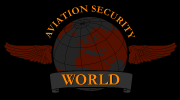Freight 'a huge gap' in aviation security, inquiry hears
Kathleen Sweet, a lawyer, author and retired U.S. air force lieutenant-colonel, said air freight, and the workers who load it, are "a huge gap" in aviation security.
She said the gap must be closed before another terrorist strike like the June 23, 1985 Air India bombing, which killed 329 people.
"We have to do it. There is just too much access to the cargo hold," testified Ms. Sweet, who heads a company called Risk Management Security Group. "My unfortunate theory is unless we get on this quickly, a plane's going to go down, it's going to be in the cargo hold and everybody's going to be fighting the next war."
Very little has been done to secure cargo even though passenger-screening techniques have improved dramatically in recent years, Ms. Sweet said.
She told the Ottawa inquiry that airlines and courier companies do not want to pay to screen freight.
But both Singapore Air and Lufthansa screen all cargo and are "very profitable," Ms. Sweet told commissioner John Major.
She identified other weaknesses in airport security, including the simple task of cleaning planes.
"I flew in on Air Canada yesterday and the plane was filthy, just filthy," Ms. Sweet said. "The fact [is] that the garbage was piled up so significantly between the seats that something could be hidden in there."
Trash could be masking knives or liquid explosives that could be used in a terrorist attack.
"You better clean that airplane and make sure that anything that could be dangerous is removed. Check the toilets, for heaven's sake. Check the overhead bins. You have to do the whole thing. You can't just run a sweeper down the main aisle and say, Oh, the airplane is clean.' That's silly. That is dangerous."
Aviation security expert Rodney Wallis also testified yesterday about the garbage problem, noting that a Korean Airlines plane was blown up in 1987 when terrorists left on board liquid explosives hidden in a liquor bottle from the duty free store.
Mr. Wallis, who has testified extensively since the inquiry began looking at aviation security issues last week, said he agreed with much of what Ms. Sweet said.
Both are opposed to armed air marshals because of the danger posed by guns aboard planes. Both said "no-fly lists" like the one Canada is implementing on June 16 are ineffective. Both said cargo security must be improved and both said there are often low-tech and cost-effective solutions to improving security that are not used.
Ms. Sweet said explosives-sniffing dogs could be used to check cargo. She also agreed with testimony from Senator Colin Kenny last week that all workers with access to the planes should be screened.
Cargo could be tampered with at the factory where the product is manufactured, Ms. Sweet said.
Shippers can drive right up to planes across North America, she said.
Ms. Sweet said another key issue in airport security is that the experts are always focusing on the last act of terrorism and not turning their minds to what could be coming next.
"We have to start thinking like the bad guys. They are not going to do the same thing over again ... we shouldn't be fighting the same war over again. We should be thinking about what they are thinking. We know what they think. We have read their manuals. They want to kill Westerners."
She said she worries about the possible use by terrorists of chemical, nuclear and biological agents on planes.
"I think they are going to do things that not only hurt people but scare them to death," Ms. Sweet said. "Just because nothing has happened since 9/11 doesn't mean that it isn't going to happen."
Mr. Wallis completed his testimony yesterday by saying that even in 1985, the series of events that led to a bomb-laden suitcase from Vancouver getting on Air India Flight 182 out of Toronto should have raised red flags.
Fly South Aviation News Africa









0 Comments:
Post a Comment
<< Home